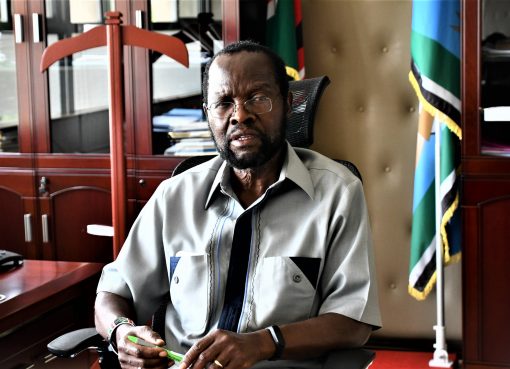The Commission on Revenue Allocation (CRA) has embarked on a process of preparing a fourth revenue-sharing formula between the National and County governments, that will cover Financial Years 2025/2026 and 2029/2030.
CRA Commissioner, Hadija Juma, who spoke when she paid a courtesy call on Bungoma Deputy Governor, Jenipher Mbatiany, noted that the Commission has embarked on a number of tasks, key among them being the commencement of the preparation of the fourth basis for revenue sharing among county governments.
Juma stated that the Commission is a key player in the operationalization of the objectives of devolution through its mandate in Article 216 of the Constitution.
She noted that the Commission has, to date, developed three recommendations on the sharing of revenue among the county governments.
Through the recommendations, substantial resources have been allocated to county governments over the ten years of devolution.
Ms. Juma expressed gratitude for witnessing what devolution has done for the people of Bungoma in the sectors of health, agriculture, water, roads, education, and urban services, among others.
The Commissioner pointed out that the output from these visits will form part of the background report that will inform the preparation of the fourth basis for revenue sharing among county governments.
“Indeed, the Commission prepared a third basis for revenue sharing among county governments, which is in use from the Financial Years 2020/21 to 2024/25,” she said.
She noted that the process in progress now will be used to share revenues among county governments for the Financial Year 2025/26.
“As a first step, the Commission already requested county governments, the public, and other stakeholders to give their comments on the Third Basis, for we believe in a consultative process,” Ms. Juma said.
Commissioner Juma commended Bungoma County for the effort in increasing its own Source Revenue Collection, from a low of 183 million in the 2013/2014 Financial Year to a high of 788 million in 2018/2019.
“Bungoma County, in the first years of devolution, had one of the best revenue automation systems that other counties are borrowing from,” she said.
She encouraged counties to adopt measures to enhance their own Source Revenue Collection and also learn from the best practises of other counties that are witnessing great success in enhancing their own Source Revenue Collection.
Juma affirmed that the Commission has been assisting counties to enhance their own Source Revenue Collection, assuring that the Commission is ready when called upon to assist.
If counties were able to reach their own source of revenue potential, then cases of delayed exchequer releases and pending bills would be less of a challenge.
“As we celebrate ten years of devolution, we need to sustain what has worked well and relook into what has not worked well, for example, do we need to redefine what is recurrent versus what is development expenditure?” she stated.
She said that there is a need to invest more in health facilities at the border, whose services are overstretched by neighbouring communities as well as being at risk of cross border diseases such as Ebola.
Commissioner Juma encouraged Bungoma County to invest more in projects that are directly impacting common mwananchi, such as the Chwele slaughter house, which, if used well, will create employment for people, increase income for people who, in the end, will be able to pay school fees for their children, and address poverty levels.
However, she cautioned the County against intra-county marginalisation, where some areas are left behind in terms of road distribution, water, and health facilities.
“The Commission is open to a harmonious engagement with all counties for the benefit of service provision to the citizens. We are always available to provide any technical assistance to the counties on public finance management matters, as and when required,” she said.
She said that plans are underway by the Commission to conduct a devolution impact assessment in all 47 counties to find out what devolution has achieved.
By Roseland Lumwamu




